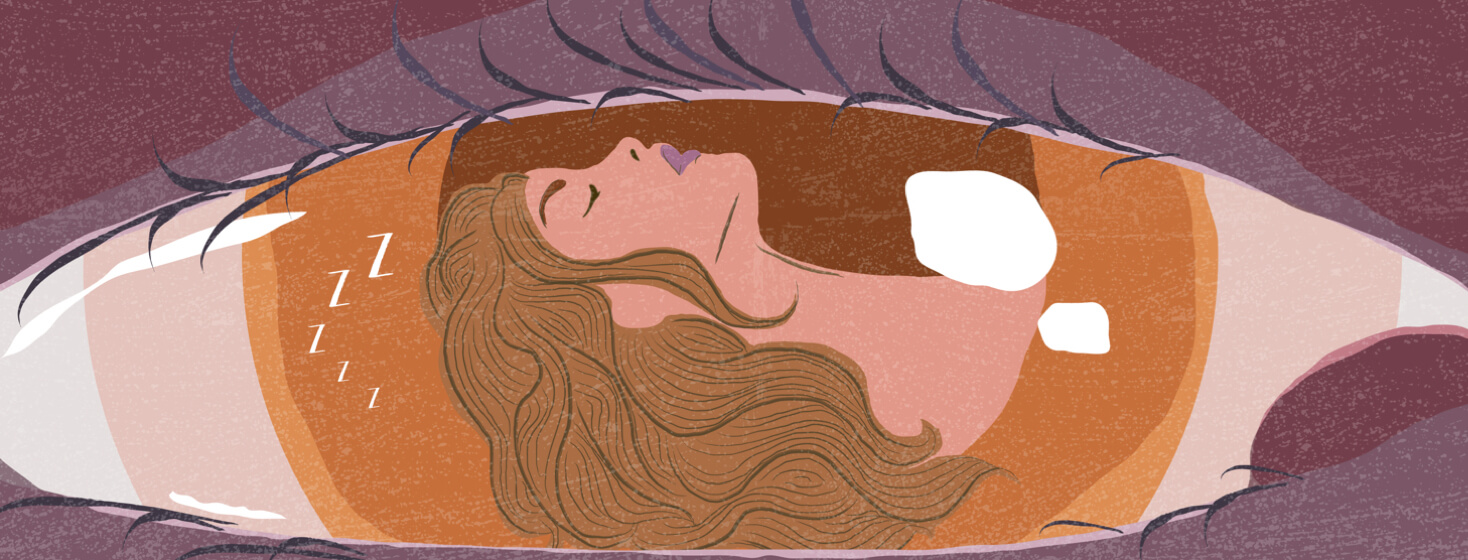What Does Sleeplessness Look Like?
“I got no sleep last night,” is a common complaint of the chronic insomniac. But is it true?
Occasionally, definitely a possibility. Most of the time, not so much. The average nightwalker is still getting a couple of hours most nights.
Bits and pieces of sleep
When I had my complete breakdown at the start of 2020, I would say I hadn’t slept from January through to March – when I was hospitalised and sleep pharmacologically forced upon me.
While my insomnia was chronic, persistent, and extreme, and it certainly felt like I hadn’t slept at all for 2 months, the reality was I did get bits and pieces of sleep here and there. Just not enough.
The extreme end of my extreme insomnia
On a bad night, I had zero sleep. I would be awake, working or walking or talking day and night, quietly going completely insane. I didn’t go to bed or even lie down for a rest. That would happen for 1 or 2 nights, and then eventually, my body would crave sleep so badly that I would lie on the couch and fall asleep for 20 minutes, and that 20 minutes felt like a lifetime.
For days at a time, I would get pockets of 20 to 60 minutes of sleep — maybe 4 or 5 times over 24 hours. Then I’d be back to complete wakefulness for a day or 2.
That was the extreme end of my extreme insomnia. But the reality even then was that I did get little bits of sleep. Not enough to stay sane but enough to keep my body functioning. Despite the way it felt, I wasn’t awake for 2 whole months.
Most insomnia does involve some sleep
The record for the longest period of time without sleep is 264 hours (11 days). And a handful of studies have shown patients staying awake for a week or so. Soldiers have been known to stay awake for up to about 4 days, and psychiatric illness can impose mania, keeping patients awake for 3 to 4 days. But these are extreme and rare circumstances.1
Most insomnia does involve some sleep. As frustrating and exhausting as it is to survive on 3 or 4 hours sleep, it is not the same as no sleep at all.
Not enough sleep feels different than no sleep
When I had my sleep study done, I would have sworn that I barely slept at all despite the 8 hours I spent in bed. But the study showed otherwise. I had slept several hours – in fits and starts. Monitoring the electrical activity in my brain showed I had definitely been asleep for periods of time despite my self-analysis of practically no sleep.
It seems important to remember that not enough sleep feels very different from no sleep. And the greatest tool I have learned in managing insomnia has been acceptance. I am no longer angry and frustrated when I can’t sleep. I have stopped fighting the wakefulness.
When I lie in bed, my eyes heavy, my body craving respite from the day, I lie there and search for peace. I consciously relax my muscles and try to bring as much rest to my mind and body as I can. The peace and relaxed state often leads to periods of sleep, which is a long way from my days of panic attacks at the mere sight of my pillow.
Accepting what my sleep looks like
My insomnia is now well managed with medication. I have accepted the fact that sleep is basically a disability for me – it is not something I can do unassisted. Even with medication, my sleep habits vary – while I routinely spend 8 hours in bed, my actual sleep can be anywhere from 3 to 7 hours. My average night would be 5 to 6 hours. And I am enormously grateful for those hours. They save my life. I have also come to embrace naps on my couch. Those little cat naps revive me throughout the day. I feel well-rested.
While I consider myself to be someone with chronic insomnia, it is now beautifully controlled, and if I stay vigilant, I get enough sleep to stay sane. And that sanity is as precious as gold dust.
How do you manage when sleeplessness comes? Share your tips and experiences in this forum.

Join the conversation